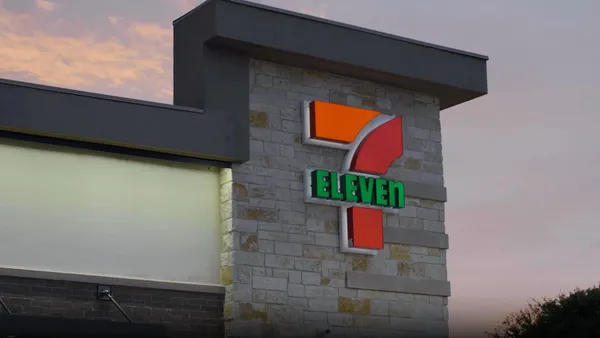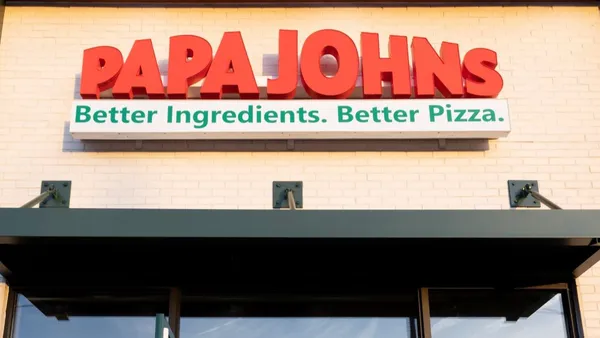Dive Brief:
- McDonald's ran a 10-day sustainable packaging experiment at its Mall of Berlin store location in June in anticipation of the European Union's impending 2021 ban on many single-use plastics, according to a company blog post.
- The store rebranded itself as the "Better McDonald's Store" during the pilot and operated completely plastic-free, serving burgers in packaging made from grass, McFlurrys with wooden spoons and condiments in edible waffle cups.
- McDonald's used the pilot as an opportunity to gain real customer feedback, and learned that some diners disliked the paper straws and the "woody" taste of the McFlurry spoons. McDonald's is running similar sustainability initiatives at stores in the U.K., Japan, Canada and the Netherlands.
Dive Insight:
Consumers are showing a strong distaste for single-use plastics and a desire to cut down on their plastic waste footprint. A number of retailers are responding to the trend and making efforts to reduce their plastic materials. Today, roughly two-thirds of consumers report a strong concern about the environmental sustainability of food packaging and more than half of overall consumers report being willing to pay for food sold in more sustainable materials. About one-third said they would even pay as much as 10% more for their meals if it meant less single-use plastic.
McDonald's test run with edible and compostable packaging taps into those new consumer sentiments, but there are questions about whether edible packaging is scalable. These solutions are often more costly than standard disposable tableware and wrappers and can be less durable. An edible waffle cup for dipping sauce may be more prone to breaking during transport and while being handled at the restaurant. Adopting sustainable packaging solutions could also require franchisees to incur more costs, which could be ill-received given McDonald's rising tensions with its operators.
McDonald's is on a mission to use packaging from sustainable sources by 2025, and considering its substantial resources and market footprint, it likely has the budget to dabble in lesser-known solutions like edible packaging that regional chains can't afford to try. It also joined forces with Starbucks as founding partners of the NextGenCup Consortium, which challenge innovators to create a more sustainable cup.
The global edible packaging market was valued at $697 million in 2016 and is projected to surpass $1 billion in value by 2023, according to Allied Market Research. But the steep cost of manufacturing these materials is likely to hamper some of the technology's growth potential. Edible packaging must comply with the same packaging and food safety requirements that apply to conventional packaging solutions, for example, and edible products can sometimes be more prone to collecting dirt and germs, AMR concluded. The product must also typically receive GRAS, or generally recognized as safe, approval from the U.S. Food and Drug Administration.
Despite the hurdles, some 18 companies are developing edible packaging materials, including Apeel Sciences, Coolhaus and Loliware, and retailers are eager to try new options. For now, edible packaging may be futuristic, but a number of major retailers including Nestle, Unilever and PepsiCo are committed to phasing in more packaging materials made from recyclable, compostable and biodegradable materials by 2025. Given McDonald's influence on the fast food segment and overall restaurant space, it seems likely that other chains will invest in sustainable packaging initiatives — edible or not — in the near future.














